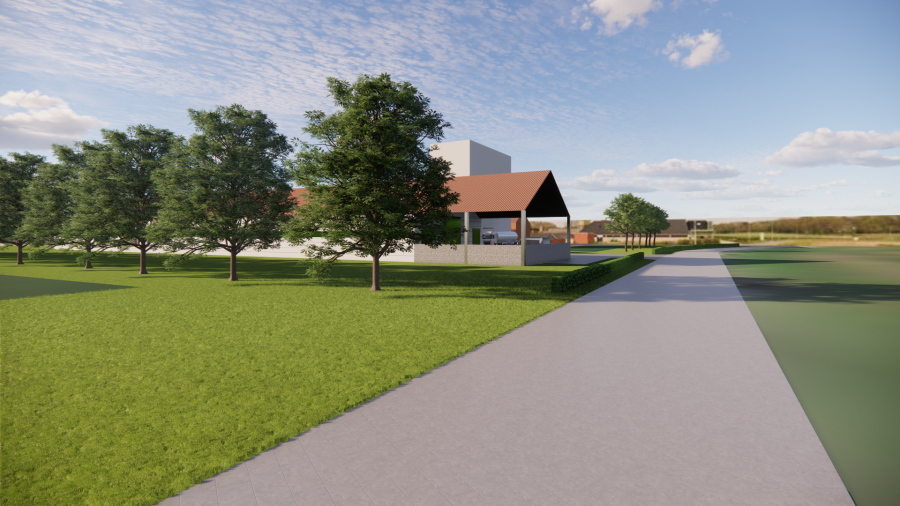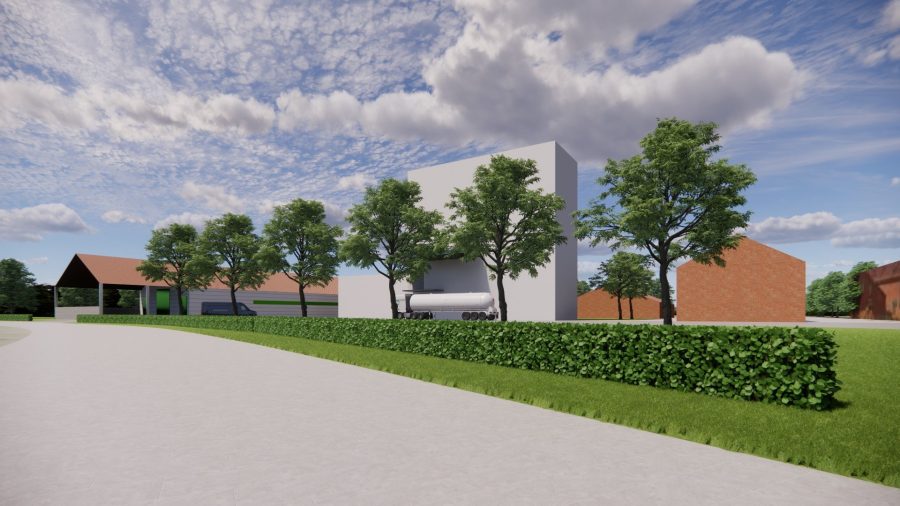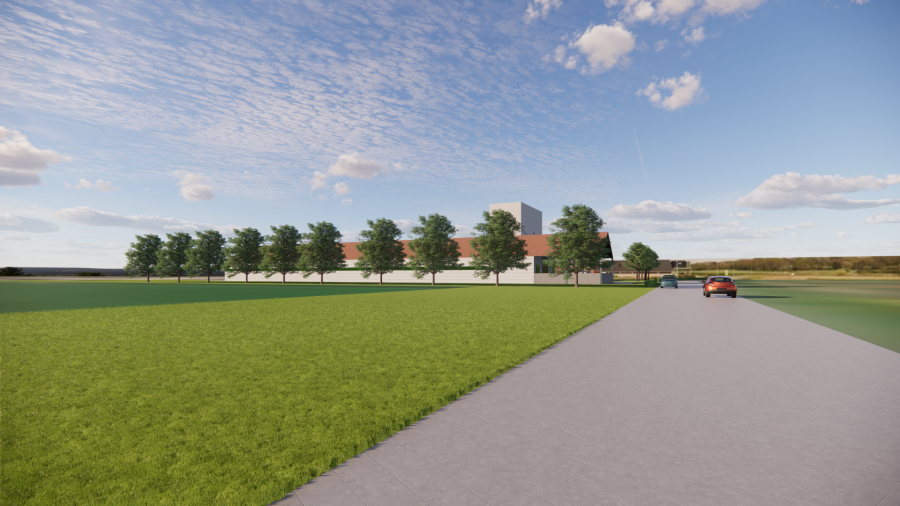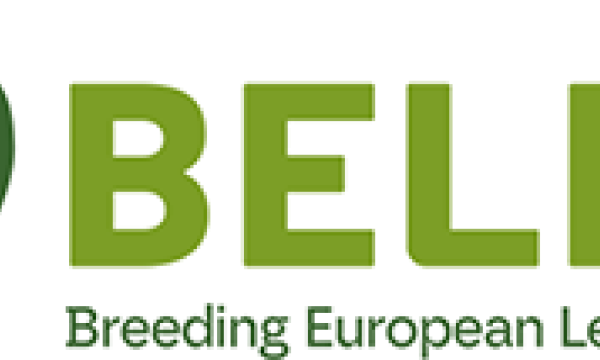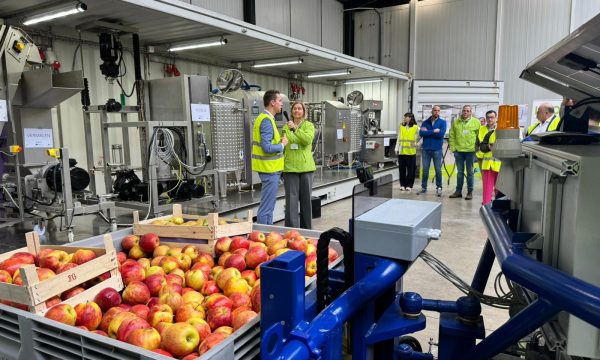Press release ILVO builds high-tech Feed Pilot
ILVO has long had a unique line of research in testing the efficiency, sustainability (impact on climate and environment) and health of newly formulated feeds for cattle, pigs and small animals. The demand for that expertise is still growing, in part because of the advent of side streams from new fermentation productions (read: learning to process high-value molecules from fermenters, such as microbial protein). Those by-product streams, as potential feed ingredients, require a lot of research.
Bart Sonck, head of ILVO Animal Sciences Unit: "ILVO itself must be able to continue to produce the precision test feeds in an effective and controlled way if it wants to present reliable test results from its feed trials." The construction of the Feed Pilot, which will still start in 2024, is funded by Flanders, Europe, Province of East Flanders and the Victam Foundation.
Investment replaces two old feed mills
ILVO currently has two separate feed production lines, which do not meet the latest standards either energetically, ergonomically or technologically. With the new ILVO Feed Pilot on Heidestraat in Melle, Flanders will have one (one) modern, high-tech facility where precise test feeds are made according to scientific requirements, for nutritional research on the most important farm animals. The new Feed Pilot includes both a large and a small production unit, and of course a warehouse for storage. So making smaller batches for more experimental cases also becomes easier, for example only 100 kg for a specific digestion study in poultry.
Annatachja De Grande, Feed Pilot project manager : "The plants will be equipped with techniques that can measure out various parameters and enable sustainability analyses. Sensors monitor on a continuous basis and direct the most energy-efficient production possible."
Answers to technical research questions
First, the ILVO Feed Pilot allows for technical experiments that focus on the production process itself. Three examples of research questions are: How can innovative additives (e.g., methane inhibitors in the context of climate research) or new co-products (e.g., residual streams from human food or microbial protein production, algae, and others) be incorporated into feeds? How can feed be modified through technical pretreatments to increase nutrient utilization (nitrogen, phosphorus) and stability of specific components in the feed or improve animal welfare? How can the production process through adjustment of production parameters lead to a reduction in energy consumption?
Ambitions around circularity, particularly valorization of new protein and residual streams
Second, with the Feed Pilot, ILVO explicitly aims to provide knowledge to the agro-food and animal feed sector on novel proteins and residue streams. ILVO assumes a research role regarding the valorization of microbial fermentation products in animal feed and high-quality ingredients in food products. This is done in close cooperation with different actors from the feed and agro-food sector.
Sam Millet, ILVO feed research expert: "The broad support for this project from Flemish, European and international channels is undoubtedly related to the growing need for research into the useful use of new protein and residue streams. In this research area, the focus is logically on increased circularity and positive impact on the environment, climate and animal welfare."Second, with the Feed Pilot, ILVO explicitly aims to provide knowledge to the agro-food and animal feed sector on novel proteins and residue streams. ILVO assumes a research role regarding the valorization of microbial fermentation products in animal feed and high-quality ingredients in food products. This is done in close cooperation with different actors from the feed and agro-food sector.Sam Millet, ILVO feed research expert: "The broad support for this project from Flemish, European and international channels is undoubtedly related to the growing need for research into the useful use of new protein and residue streams. In this research area, the focus is logically on increased circularity and positive impact on the environment, climate and animal welfare."Second, with the Feed Pilot, ILVO explicitly aims to provide knowledge to the agro-food and animal feed sector on novel proteins and residue streams. ILVO assumes a research role regarding the valorization of microbial fermentation products in animal feed and high-quality ingredients in food products. This is done in close cooperation with different actors from the feed and agro-food sector.
Sam Millet, ILVO feed research expert: "The broad support for this project from Flemish, European and international channels is undoubtedly related to the growing need for research into the useful use of new protein and residue streams. In this research area, the focus is logically on increased circularity and positive impact on the environment, climate and animal welfare."
Combined support and shared ambitions, from Flanders and Europe
At the end of 2022, the Flemish Government granted an endowment for the FEED PILOT, in the context of the protein transition and making food production more sustainable. The additional financial support through ERDF, the European Regional Development Fund, focuses mainly on the large production line, and immediately implies the co-financing of the Province of East Flanders and the Victam Foundation. The latter is a Foundation (VICTAM International Ltd., 1968, Deventer, Netherlands) that stands for knowledge development and sharing around technologies for raw materials for animal feed, pet food and human nutrition, and supports innovative initiatives in the international feed and food sector. Finally, the Flemish EWI also reserves funds for the future Feed Pilot, in the framework of the research project on microbial protein transition: "Microbial fermentation products as protein sources in food and feed applications from Flemish companies."
Complementarity and collaboration.
Initially, the Feed Pilot will work for internal ILVO research, but legal permission will also be requested to produce (experimental) feed for third parties. For other research institutions and for private firms in Flanders, this creates more opportunities toward innovation and economic valorization.
Sam De Campeneere, Scientific Director ILVO Livestock: This Feed Pilot is also complementary to the Feed Design Lab (https://feeddesignlab.nl/) in the Netherlands (Wanssum). The goal is to reinforce each other as much as possible. In Wanssum (Nl.) they focus more on process technology." Furthermore, good contacts have already been established with the Belgian Feed Association (BFA), with various actors from the feed sector and with other research institutes. "A close collaboration with the Food Pilot active at ILVO is also a matter of course, in order to maximize the circular implementation of new products in the agri-food chain."
Contact
Greet Riebbels, Communications Director at ILVO greet.riebbels@ilvo.vlaanderen.be M. +32 486 260014
Sam De Campeneere, Scientific Director at ILVO Animal Husbandry M. +32 476 57 49 88 Sam.DeCampeneere@ilvo.vlaanderen.be
Annatachja De Grande, Feed Pilot manager Annatachja.DeGrande@ilvo.vlaanderen.be
